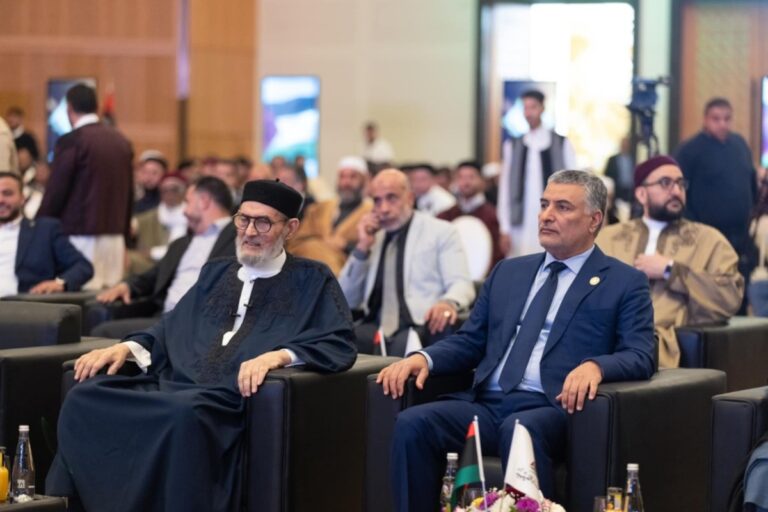🎧 Listen to This Article
Libya’s top religious authority reiterates its stance against the Central Bank’s foreign currency tax, calling it unlawful and urging its immediate suspension.
A Religious and Economic Clash Over the Foreign Currency Tax
In a powerful statement that has drawn attention across Libya, the country’s leading religious authority, Dar al-Ifta, has reaffirmed its opposition to the foreign currency tax imposed by the Central Bank of Libya (CBL). The tax, introduced in mid-2024, has been described by Dar al-Ifta’s Council for Sharia Research and Studies as not only unjust but also religiously prohibited under Islamic law. The council’s renewed call for the tax’s suspension underscores a wider debate over the balance between religious beliefs, economic policies, and the Libyan government’s fiscal strategies.
Religious Rejection of the Tax
In June 2024, Dar al-Ifta’s Council issued a statement declaring that the foreign currency tax was a form of unjust levy, which is strictly prohibited in Islam. The council’s condemnation centered around the principle that collecting money from citizens without a fair exchange constitutes usurpation, violating core tenets of Islamic law. Drawing upon religious texts and scholarly consensus, Dar al-Ifta labeled the tax as a “major sin” and demanded its immediate revocation.
The religious body emphasized that, according to Islamic principles, financial transactions must be conducted with fairness and transparency. The tax, which imposes additional burdens on citizens seeking foreign currency, was seen as unjustifiable, particularly given Libya’s oil and gas wealth, which the council argues should be sufficient for state revenues.
The Economic Context and Government Justifications
The Libyan government, through the Central Bank, had defended the foreign currency tax as necessary for stabilizing the market and addressing the depreciation of the Libyan dinar against foreign currencies. However, Dar al-Ifta has contested this rationale, asserting that the policy has exacerbated, rather than alleviated, the currency gap. The tax, which applies to the purchase of foreign currency, has led to a surge in black market trading, making it harder for Libyan citizens to access foreign currencies at a reasonable rate.
The criticism from Dar al-Ifta also points to broader concerns about economic mismanagement within the Libyan government. Allegations of corruption, unmonitored public spending, and the misallocation of state resources have been persistent themes in the country’s financial landscape. Issues such as politically motivated appointments, excessive government travel, and the smuggling of fuel are among the practices that Dar al-Ifta cites as contributing to the economic crisis, rather than improving it.
Political and Legal Ramifications
Dar al-Ifta’s renewed opposition is not just a religious objection but also a political and legal stance. The council’s statement denounces both the tax and any individuals or authorities that support or remain silent on the issue, labeling them complicit in an unjust action. The religious authority’s influence in Libyan society cannot be underestimated, as it holds significant sway over the beliefs and actions of many Libyans, particularly those who prioritize Islamic teachings in their daily lives.
The statement also expressed support for the legal system’s recent rulings, which temporarily suspended the tax, and called for other judicial bodies to follow suit. This highlights the ongoing tension between religious authority and the Libyan government’s economic policies, with the courts playing a pivotal role in determining whether the foreign currency tax will be permanently revoked.
A Larger Debate on Governance and Accountability
At the heart of the controversy lies a broader debate about governance in Libya. While Dar al-Ifta frames the issue through a religious lens, it also touches on critical questions of state legitimacy, accountability, and transparency. The repeated invocation of corruption, mismanagement, and misuse of public funds reflects a deep-seated mistrust in the Libyan state apparatus.
The tax on foreign currency purchases may appear to be a technical economic measure, but it is also a flashpoint in Libya’s ongoing struggle to manage its finances in a transparent and equitable way. As the country continues to grapple with the consequences of years of conflict and political instability, decisions like the imposition of this tax reveal the complexities of rebuilding a functioning state while maintaining religious and social harmony.
Conclusion: The Future of Libya’s Foreign Currency Tax
Libya’s foreign currency tax remains a contentious issue, with Dar al-Ifta continuing to lead the religious opposition against it. As both religious and legal challenges mount, the tax’s future remains uncertain. However, the stance taken by Dar al-Ifta may be indicative of broader challenges that the Libyan government faces in terms of its legitimacy and ability to manage the economy fairly and transparently. For now, the issue of the foreign currency tax highlights the intersection of religion, law, and governance in Libya, and the crucial role of both religious and legal bodies in shaping the country’s future economic policies.
For further details, clarification, contributions, or any concerns regarding this article, please contact us at editorial@tax.news. We value your feedback and are committed to providing accurate and timely information. Please note that our privacy policy will handle all inquiries



